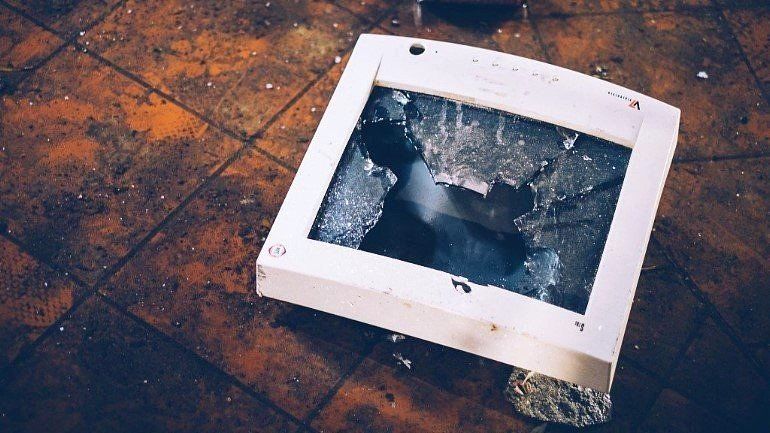Owning It
“More people would learn from their mistakes if they weren’t so busy denying them”,
Harold J Smith.
Taking responsibility. It’s a respected trait when seen in other people and yet it is often under-utilised by most of the population. People would rather cover up their mistakes or blag their way out of a situation than take responsibility. Understandably, there may sometimes be a legitimate fear of the consequences of owning up to a mistake but predominantly the reason for not taking responsibility is to ‘save face’ and do some image management.
A person may even at times be in complete denial of their behaviour or character traits. This could be due to the high level of shame they feel and to admit fault would open the door to such intense emotions that they block themselves off from accepting any responsibility. Alternatively, their perception of ‘who they are’ might be so rigid that they are unable to see themselves in a different light – even if all the evidence points to their perception being inaccurate. In both these situations, the person is more likely to deflect blame onto someone else and see themselves in the role of being ‘the victim’. In the extreme, if someone displays personality traits which are akin to a narcissist, whereby they have a grandiose view of themselves, any criticism – whether based on fact or opinion – would be completely incomprehensible to them.
“The greatest of faults, I should say, is to be conscious of none.”
Thomas Carlyle, Scottish philosopher.
Whatever the cause of not accepting responsibility for a situation or action, the outcome is likely to be largely negative. Newton’s third law states that for every action, there's an equal and opposite reaction. Just as it is the case with physics, it is true for human actions and behaviour. If someone makes a mistake at work, it has consequences. Equally, if someone is rude to another colleague, it has consequences – impacting relationships, disciplinary proceedings, or low morale.
Therefore, if someone does not take responsibility for a problem, it may be that an innocent bystander takes the blame instead. If a mistake remains unresolved, little problems can get bigger. Also, the likelihood of the truth not being discovered is minimal at best. If it is discovered later that the person responsible shirked any accountability for their actions then it will not reflect well on their principles and integrity. Such a discovery would almost always lead to damage to trust in any working or personal relationship.
It is a common error that people focus on the mistake itself being the biggest problem
and so feel so compelled to cover it up. In reality, other people can forgive mistakes but once trust is broken following deception, it is much harder to regain that relationship. In a workplace environment trust between colleagues, or between management and staff, leads to greater productivity and a culture of healthy working relationships. Honesty is appreciated and gains respect; whereas deception loses respect and trust.
What does it mean to take responsibility?
There are normally 4 key elements:
1. Take ownership
• Be accountable for whatever part your behaviour played in the situation and the outcome. Don’t make unnecessary excuses and don’t start spreading blame onto others.
2. Apologise
• Saying ‘sorry’ is a powerful tool in strengthening personal and working relationships. It does a lot to regain whatever trust is lost and makes steps to heal any damage done.
3. Make amends
• Saying ‘sorry’ does a lot but actions in addition to an apology takes things to a whole other level of mending fences.
4. Accept consequences
• Being prepared to accept the consequences of your actions may be worrying and those consequences may be considerable, depending on the extent of the damage done. However, doing this shows others your humility and allows them to see that you may still be trustworthy.
Taking responsibility does more than just show others what you are worth, it also is likely to boost your own self esteem as it gives back the power to influence the situation in a positive way.
“The willingness to accept responsibility for one’s own life is the source from which self-respect springs.”
Joan Didion, author.
Not taking responsibility and not owning your behaviour leaves unresolved issues between people. It creates barriers to strong and honest relationships, and it will inevitably lead to stress from the guilt or the general uneasiness when any deception occurs. Most notable people with great success apportion some of their success to having people around them to keep them accountable and therefore constantly growing in character and the ability to be self-aware.
When working through a situation where there is conflict between people, it is far easier and far more effective when people own their mistakes or simply own how their behaviour could have affected the other person, unintentionally. Owning it is a daily process of making yourself accountable for your behaviour and in doing so, the likelihood of bringing unnecessary conflict into your work life is diminishes significantly.
Own it.
If you need any information on how mediation could help you with any workplace or employment issues, please get in touch by emailing emma.jenkings@mosaicmediation.co.uk or through the Contact page.











